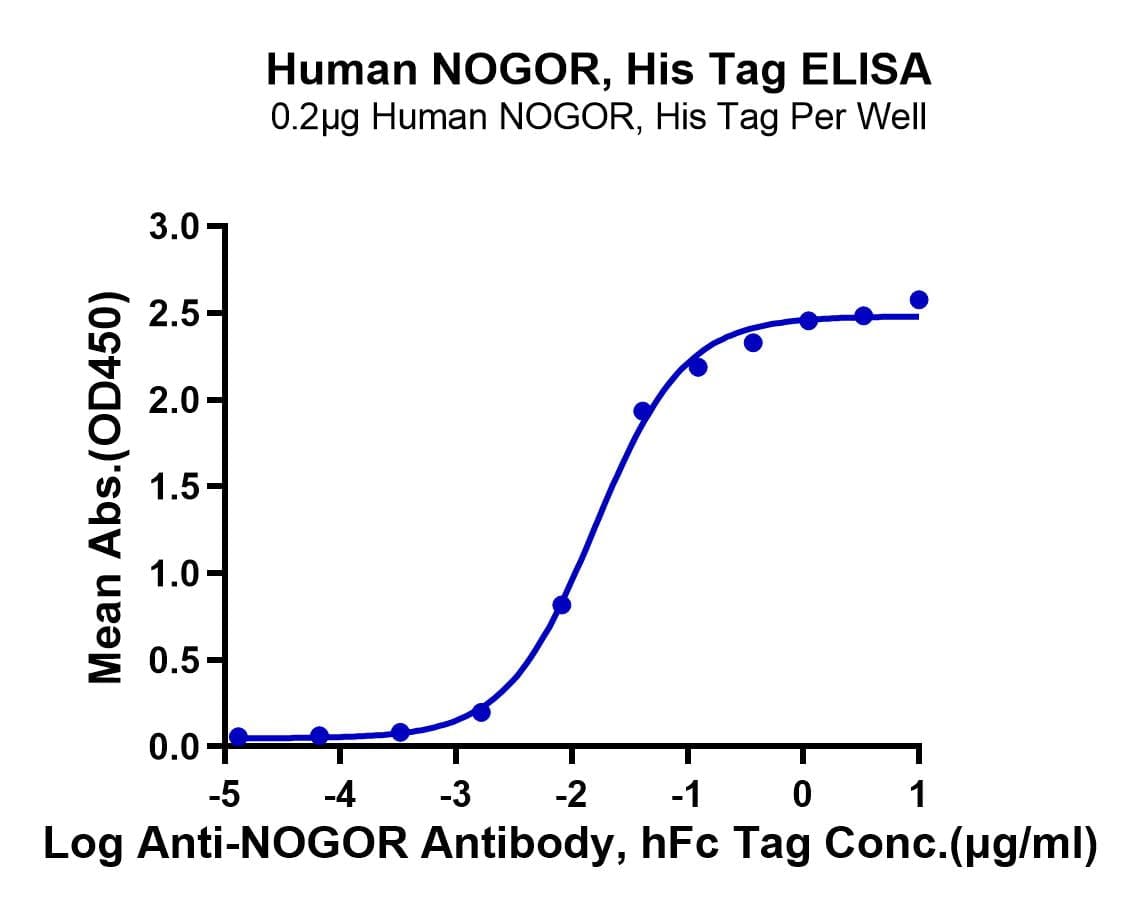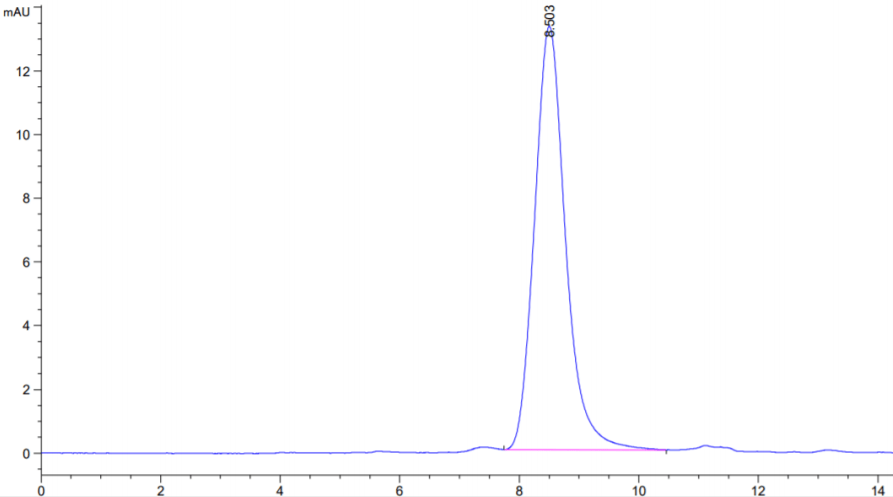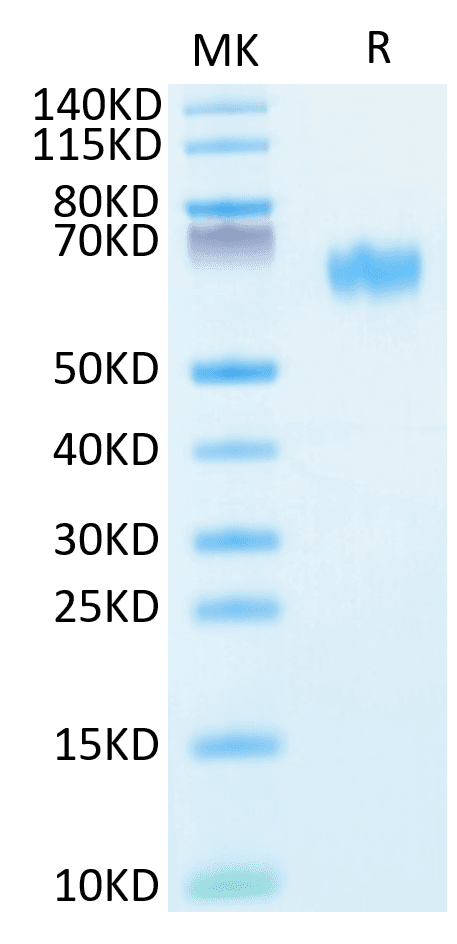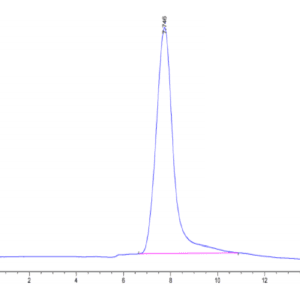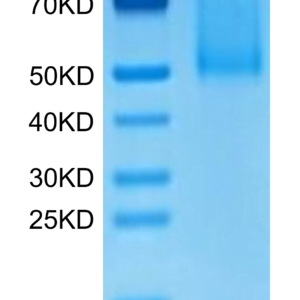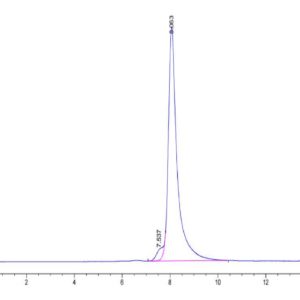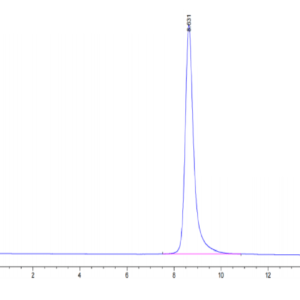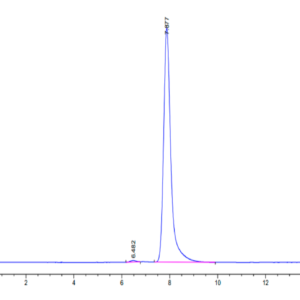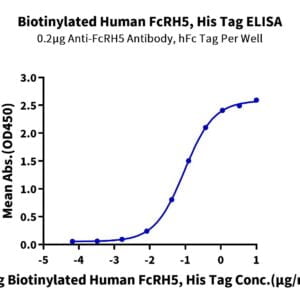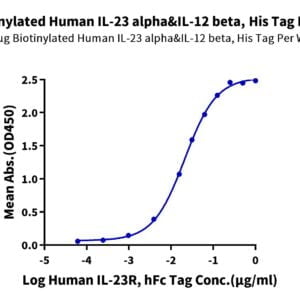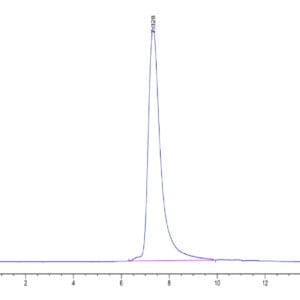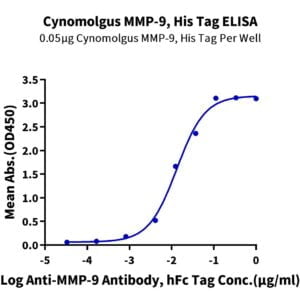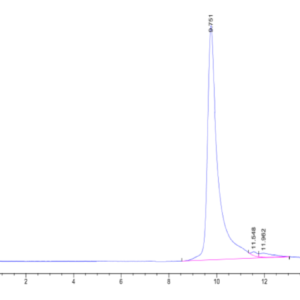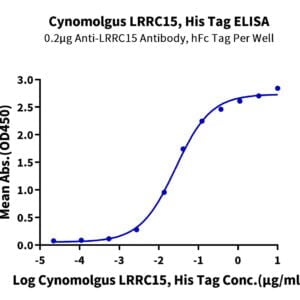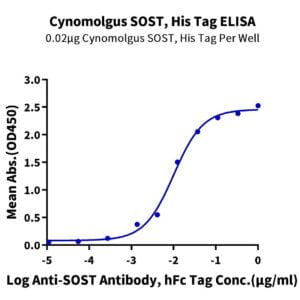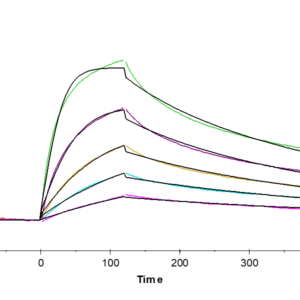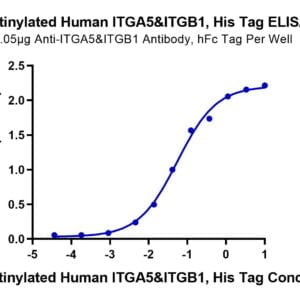| Weight | 1 lbs |
|---|---|
| Dimensions | 9 × 5 × 2 in |
| accession | Q9BZR6 |
| express system | HEK293 |
| product tag | C-His |
| purity | > 95% as determined by Tris-Bis PAGE;> 95% as determined by HPLC |
| background | NOGO Receptor 1 (RTN4R) regulates axonal growth, as well as axon regeneration after injury. The gene maps to the 22q11.2 schizophrenia susceptibility locus and is thus a strong functional and positional candidate gene.RTN4R may modulate the genetic risk or clinical expression of schizophrenia in a subset of patients and identify additional studies that will be necessary to clarify the role of RTN4R in psychiatric phenotypes. |
| molecular weight | The protein has a predicted MW of 46.4 kDa. Due to glycosylation, the protein migrates to 60-70 kDa based on Tris-Bis PAGE result. |
| available size | 100 µg, 500 µg |
| endotoxin | Less than 1EU per μg by the LAL method. |
Human NOGOR Protein 3980
$270.00 – $900.00
Summary
- Expression: HEK293
- Functional: Yes (ELISA)
- Amino Acid Range: Cys27-Ser447
Human NOGOR Protein 3980
| protein |
|---|
| Size and concentration 100, 500µg and lyophilized |
| Form Lyophilized |
| Storage Instructions Valid for 12 months from date of receipt when stored at -80°C. Recommend to aliquot the protein into smaller quantities for optimal storage. Please minimize freeze-thaw cycles. |
| Storage buffer Shipped at ambient temperature. |
| Purity > 95% as determined by Tris-Bis PAGE |
| target relevance |
|---|
| NOGO Receptor 1 (RTN4R) regulates axonal growth, as well as axon regeneration after injury. The gene maps to the 22q11.2 schizophrenia susceptibility locus and is thus a strong functional and positional candidate gene.RTN4R may modulate the genetic risk or clinical expression of schizophrenia in a subset of patients and identify additional studies that will be necessary to clarify the role of RTN4R in psychiatric phenotypes. |
| Protein names Reticulon-4 receptor (Nogo receptor) (NgR) (Nogo-66 receptor) |
| Gene names RTN4R,RTN4R NOGOR UNQ330/PRO526 |
| Protein family Nogo receptor family |
| Mass 9606Da |
| Function Receptor for RTN4, OMG and MAG (PubMed:12037567, PubMed:12068310, PubMed:12089450, PubMed:12426574, PubMed:12839991, PubMed:16712417, PubMed:18411262, PubMed:19052207). Functions as a receptor for the sialylated gangliosides GT1b and GM1 (PubMed:18411262). Besides, functions as a receptor for chondroitin sulfate proteoglycans (By similarity). Can also bind heparin (By similarity). Intracellular signaling cascades are triggered via the coreceptor NGFR (PubMed:12426574). Signaling mediates activation of Rho and downstream reorganization of the actin cytoskeleton (PubMed:16712417, PubMed:22325200). Mediates axonal growth inhibition (PubMed:12839991, PubMed:19052207, PubMed:28892071). Plays a role in regulating axon regeneration and neuronal plasticity in the adult central nervous system. Plays a role in postnatal brain development. Required for normal axon migration across the brain midline and normal formation of the corpus callosum. Protects motoneurons against apoptosis; protection against apoptosis is probably mediated via interaction with MAG. Acts in conjunction with RTN4 and LINGO1 in regulating neuronal precursor cell motility during cortical development. Like other family members, plays a role in restricting the number dendritic spines and the number of synapses that are formed during brain development (PubMed:22325200). |
| Subellular location Cell membrane ; Lipid-anchor, GPI-anchor. Membrane raft. Cell projection, dendrite. Cell projection, axon. Perikaryon. Note=Detected along dendrites and axons, close to synapses, but clearly excluded from synapses. |
| Tissues Widespread in the brain but highest levels in the gray matter. Low levels in heart and kidney; not expressed in oligodendrocytes (white matter). |
| Structure Homodimer (PubMed:18411262). Interacts with MAG (PubMed:12089450, PubMed:12839991, PubMed:18411262, PubMed:19052207). Interacts with RTN4 (PubMed:12839991, PubMed:19052207). Interacts with NGFR (PubMed:12426574, PubMed:18411262, PubMed:19052207). Interacts with LINGO1 (PubMed:14966521, PubMed:19052207). Interacts with KIAA0319L (PubMed:20697954). Interacts with OLFM1; this inhibits interaction with LINGO1 and NGFR (By similarity). Interacts with OMG (PubMed:12068310, PubMed:12839991, PubMed:19052207). |
| Post-translational modification N-glycosylated. O-glycosylated. Contains terminal sialic acid groups on its glycan chains. |
| Target Relevance information above includes information from UniProt accession: Q9BZR6 |
| The UniProt Consortium |
Data
Publications
Publications
| pmid | title | authors | citation |
|---|---|---|---|
| We haven't added any publications to our database yet. | |||
Protocols
| relevant to this product |
|---|
Documents
| # | ||
|---|---|---|
| Please enter your product and batch number here to retrieve product datasheet, SDS, and QC information. | ||
